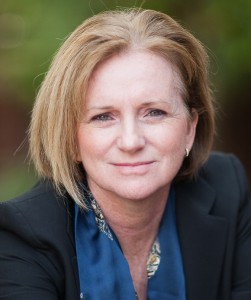IIT Institute of Design welcomes Catherine Casserly, along with faculty from IIT Chicago-Kent College of Law, for a discussion on the implications of ownership, privacy, intellectual property, and use of public space in an open-source world at 5:30 p.m. on Monday, October 6, 2014 at IIT Institute of Design located at 350 N. LaSalle Street. Casserly will open the panel with a brief talk on new media and ownership. The panel will explore the legal, technical, social, and financial aspects of ownership with a focus on open models based on a course Casserly is teaching at IIT Institute of Design.
Casserly is former CEO of Creative Commons (CC), a global nonprofit and community dedicated to supporting an open and accessible Internet enriched with free knowledge and creative resources for people around the world to use, share, and cultivate. Casserly is dedicated to supporting the openness movement. As the director of the Open Educational Resources Initiative at The William and Flora Hewlett Foundation, she managed a portfolio of more than $100 million in investments focused on the effectiveness of knowledge sharing.
The Panel
Lori Andrews is a distinguished professor of law at IIT Chicago-Kent and director of IIT’s Institute for Science, Law and Technology. Her path-breaking litigation about technologies caused the National Law Journal to list her as one of the “100 Most Influential Lawyers in America.” She has written 11 non-fiction books and three novels.
Ed Lee teaches international intellectual property law, copyright law, and trademark law at IIT Chicago-Kent as a professor of law and director of the Intellectual Property Law Program. Lee’s research focuses on the ways in which the Internet, technological development, and globalization challenge existing legal paradigms.
Anijo Punnen Mathew is an associate professor at IIT Institute of Design. His research looks at evaluating new semantic appropriations of place as enabled by technology and media convergence. He also works with companies to adapt and change to the information economy through the use of design methodology and theory.
RSVP here.

